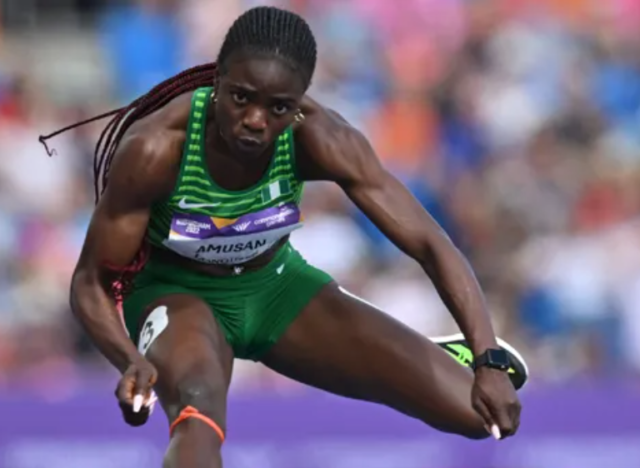On Friday, 9th August, at the Stade de France, Nigeria’s Tobi Amusan competed in the first semi-final of the 100m hurdles at the 2024 Paris Olympic Games. Expectations were high for the world record holder to qualify for the final and possibly win a medal. However, she finished third in her heat with a time of 12.55 seconds.
As the remaining semi-finals wrapped up, it became evident that Amusan’s time was insufficient to advance. The hope for a miracle faded, and by 11:30 a.m., it was clear that Team Nigeria would leave the 2024 Olympic Games without a medal, leaving many Nigerians deeply disappointed.
An X user, @cchukudebelu, remarked, “Performance at the Olympics, like electricity generation, is ultimately a test of state capacity—which Nigeria lacks.”
The Ministry of Sports and the various sports federations focused on miraculous outcomes rather than meticulous, scientific preparation. There was no clear strategy about which athletes had the best medal prospects. Instead, there was a reliance on hope and prayers, reminiscent of Chioma Ajunwa’s leap or Nwankwo Kanu’s golden goal. However, such miracles did not materialise this time. The blame game has begun, with officials avoiding responsibility for their failures.
Much was made of the federal government’s release of between eight and 12 billion Naira for Team Nigeria’s participation in the Games. However, the timing and context of this release raise questions about its effectiveness.
After the disappointing outcome, the Minister of Sports Development, John Enoh, apologised to Nigerians. “The concerned Federations obviously prioritised qualification over preparations for the Games. This seems to have always been the case. This has to change.”
![Minister of Sports Development, John Enoh.. [PHOTO CREDIT: Twitter page of Mr Enoh | https://x.com/OwanEnoh/status/1712142395058401371?s=20]](https://i0.wp.com/media.premiumtimesng.com/wp-content/files/2023/10/John-Enoh.jpeg?resize=1186%2C789&ssl=1)
It’s wiser to focus on why Nigeria continues to underperform at global events than rehashing the inadequacies of officials and administrators from the Nigeria Olympic Committee (NOC) and the 12 federations from which the 88 athletes were selected.
The focus in Nigerian sports administration has often been on participating in events and tournaments rather than on long-term growth. Officials seem more concerned about the embarrassment of missing tournaments than about grassroots sports development.
Team Nigeria did not win a medal in many other Olympic Games: Helsinki 1952, Melbourne 1956, Rome 1960, Mexico 1968, Seoul 1988, and London 2012.
At the Paris Olympics, 10,714 athletes from 216 countries competed, with 1,436 medals awarded. Eighty-four countries won at least a bronze, and every country with a population of over 200 million won at least one medal—except Nigeria.







